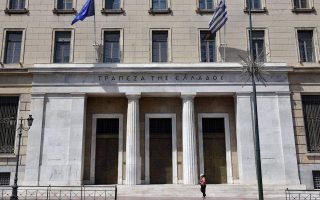Greece safe from debt crisis
Servicing of country’s dues is structured in a way that prevents impact from soaring rates

Greek bond yields may have evoked nightmares from the past – with the benchmark 10-year debt exceeding 4.7%, levels unseen in five years – but economists, bond market players, government and European officials assure Kathimerini that there is no risk of another debt crisis – at least for now.
Having experienced market exclusion in 2010, which led to the bailout adventure, worries were bound to emerge. However, the government has said that what it is most concerned about this summer is the rising prices of gas and oil rather than the country’s rising borrowing costs.
The Bank of Greece shares the same concerns, with Governor Yannis Stournaras emphasizing to his entourage the need for fiscal responsibility and for attaining investment grade, so that the country can face the approaching storm.
ESM President Klaus Regling explained after last Thursday’s Eurogroup, where it was decided that the country should leave enhanced surveillance, why Greece is fairly safe: As 60% of the country’s debt is held by the official sector, which has lent it at a fixed rate of 1.4% and averages just over 18 years, its financing needs are limited. In addition, a large percentage of the debt is regulated by swap operations with fixed interest. “Greece does indeed have the largest debt as a percentage of GDP in the eurozone, but the amount it has to pay to service its debt is relatively small, smaller than some eurozone peers with lower debt rates. I’m not worried that rising global interest rates will lead to a particular problem in Greece,” Regling said.
A bond market source comments that with this debt structure, there will only be cause for concern if the 10-year bond yield exceeds 6-6.5%.
In addition, Greece has a cash buffer of about 37 billion euros, which would allow it to stay away from markets, if it chooses, for at least two years, though that would make Greece again appear as the weak link. There is also the protection of the ECB and the new mechanism it is preparing to prevent market fragmentation.





